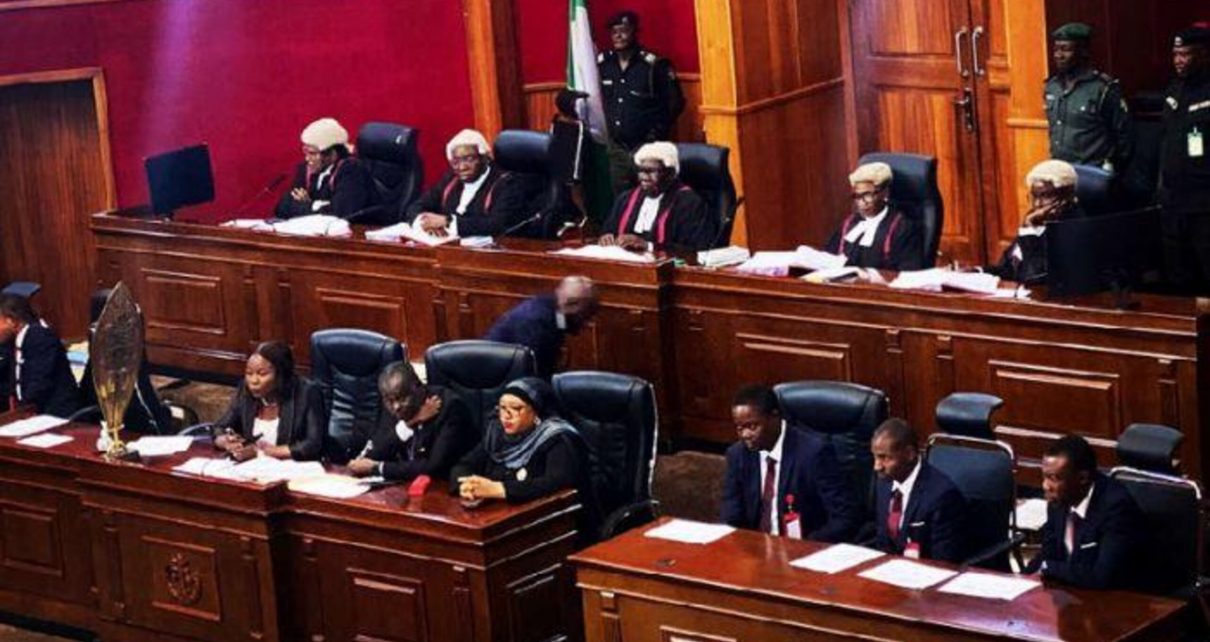In a much-anticipated decision scheduled for Wednesday, the Presidential Election Petitions Tribunal (PEPT) is poised to render its verdict on petitions challenging the outcome of the presidential election that ushered Bola Tinubu into the highest office of the land, as announced by the court registrar on Monday.
The presidential contest held in February saw Bola Tinubu, a prominent figure within the All Progressives Congress, emerge victorious. His two main rivals, Atiku Abubakar of the People’s Democratic Party and Peter Obi, who finished second and third in the race, respectively, have fiercely contested this victory. Their legal challenge revolves around allegations of electoral fraud.
Commencing its proceedings in June, the election tribunal is poised to deliver its much-anticipated ruling on September 6, with the event set to be broadcast for public viewing.
Nigeria’s democratic history since its return to civilian rule in 1999 has consistently featured contested election outcomes, yet none have been overturned by judicial intervention, with the notable exception of the 2015 election, when Goodluck Jonathan gracefully conceded defeat to Muhammadu Buhari.
Despite facing this electoral challenge, Bola Tinubu, aged 71, has already taken the oath of office as Nigeria’s president. He now confronts mounting pressure to swiftly address the nation’s pressing economic and security concerns. Notably, during the pending verdict, President Tinubu is scheduled to participate in the G20 summit taking place in India.
Tinubu’s victory in February’s election saw him secure 37% of the vote, marking the lowest share of the electoral pie since the nation’s return to democracy in 1999.
The opposition parties have vehemently decried the election’s outcome, particularly in light of technical glitches that marred the voting process. These errors related to new electoral technology that the electoral commission promised would increase transparency but ultimately failed, eroding public confidence.
Furthermore, the election witnessed a discouragingly low voter turnout, even by Nigerian standards. With just under 25 million votes cast out of a pool of 87 million eligible voters with identity cards, the turnout stood at a meagre 29%. This marked a decline from the 2019 election, which recorded a 35% turnout.


